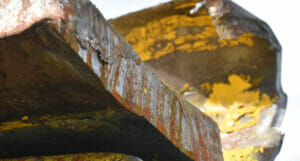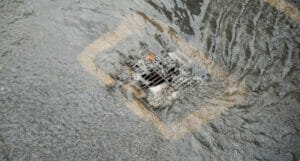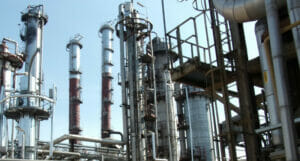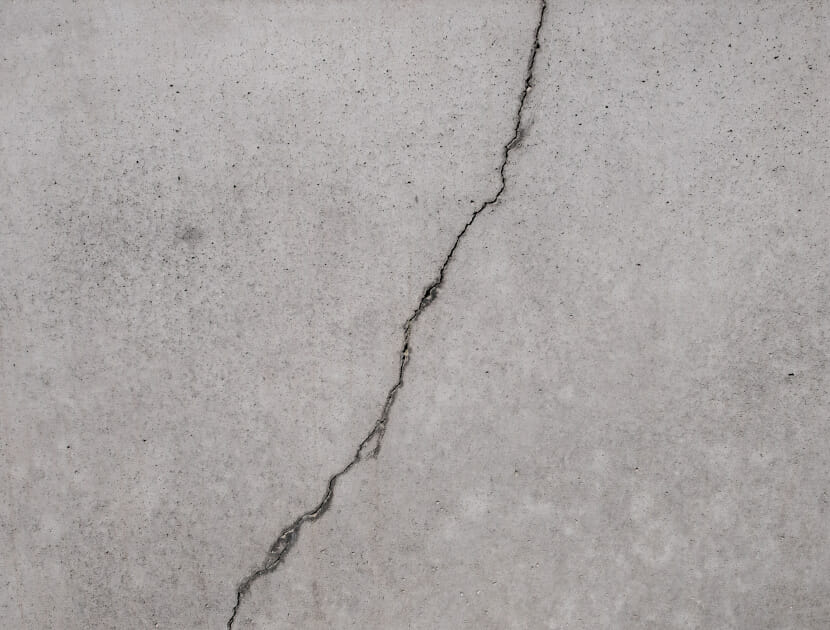Concrete & Aggregates
Concretes, screeds and aggregates are the backbone of the building industry. Without these materials many structures simply could not be built. Yet the failure of these can have catastrophic consequences, jeopardising the safety and reliability of structures.
By taking samples or cores from buildings, Hawkins can help to identify what is happening and why degradation is occurring. Normally concrete elements are reinforced with steel bars or fibres and Hawkins can investigate the failure or corrosion of these components.
WHY APPOINT A FORENSIC INVESTIGATOR?
We have the technical knowledge and experience to tell you why a concrete or aggregate failure occurred, not just what caused it.
- We have an in-depth knowledge of the regulations, guidance and best practices that should be followed during manufacture, assembly and/or installation of concrete and aggregate.
- We review working practices and installations to identify areas at high risk of a fault.
- We offer guidance and/or help you define and develop good working procedures and practices to reduce the risk of incidents occurring.
- We provide you with the answers you need to determine why an incident occurred and so assist in repudiation/cover decisions and fraud identification.
- Our experts are knowledgeable in a wide range of areas and can investigate all aspects of a materials failure, meaning that you can instruct one expert, rather than several.
- We have laboratories and equipment designed specifically to investigate materials failures, with powerful, state-of-the-art stereomicroscopes.
- We will help you to determine if an incident could have been avoided.
- We support subrogation/recovery efforts.
- We help you to make decisions regarding where legal responsibilities/liabilities lie.
- We help you to defend wrongful claims.
- We produce reports suitable for Court and litigation.
- We provide consultancy advice to prevent similar events happening again in the future.
- If removing a risk entirely is unavoidable, we advise on steps to take to mitigate the risk and reduce the potential damage resulting from an incident.
- We advise on servicing, maintenance and repair regimes.
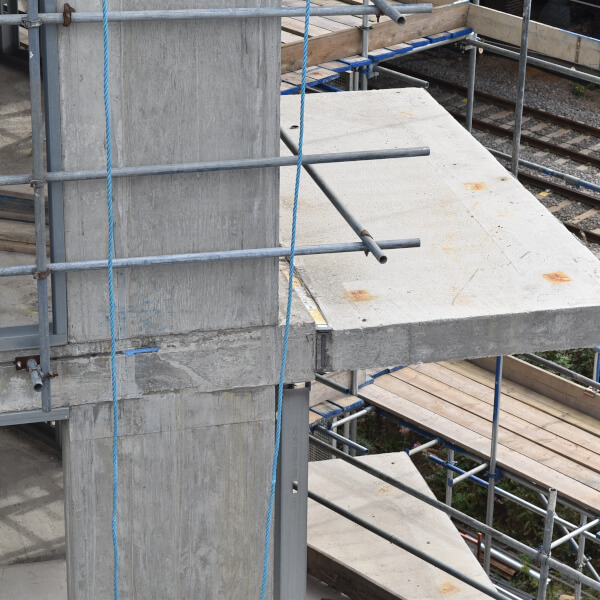
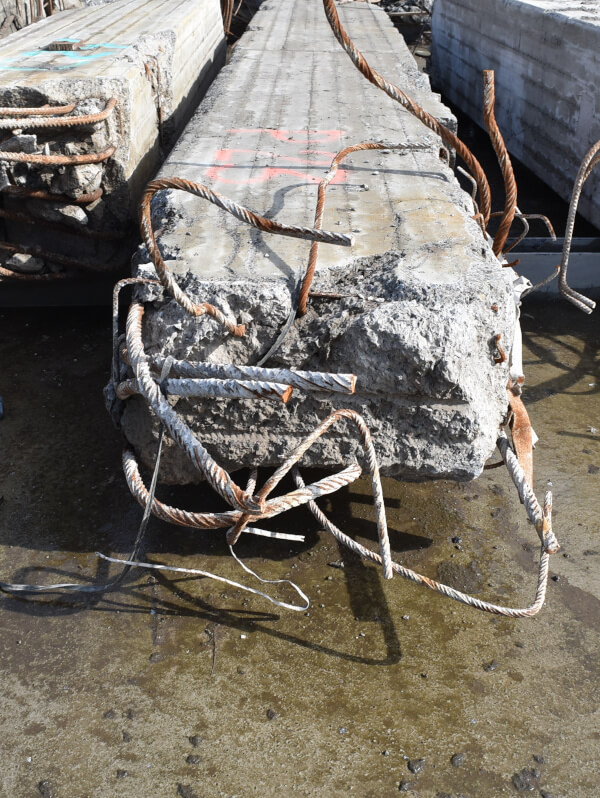

Examples of Typical Cases
- Premature failures of structural parts
- Sudden/catastrophic failures of concrete/aggregate components
- Failure of screeds
- Spalling of concrete from structures such as car parks or bridges
- Composite reinforced pipe and hose failures
- Poor/incorrect design or structural planning, leading to unsuitable parts
Our services are flexible and can be tailored to your needs, depending on the scale and urgency of the investigation. Our services range from a free consultation through to a full investigation including a court-compliant report for the support of legal action.
If you would like to discuss how we can assist you please fill out our enquiry form or call us for a free consultation.
HOW DOES HAWKINS INVESTIGATE CONCRETE & AGGREGATE FAILURES?
1
Consultation
We like to speak to our clients before conducting any work so that we can understand and plan how we can add the most value to any case. We will discuss your requirements, determine what information is already available and who the most appropriate parties are to contact to fully understand the background of the case. We are also happy to provide you with a cost estimate and timescale to conduct a forensic investigation.
2
Inspection
If required and with your agreement, we will arrange to visit the scene to inspect the damage. Wherever possible, we will retain faulty parts for examination in our laboratory, where we use a range of equipment, tools, and tests to determine the cause of the failure. This could include microscope examinations, recreating an installation in a controlled environment, or testing exemplar components or materials.
3
Conclusion
Once our examination is complete, we will discuss our findings with you and prepare a report containing a detailed account of our investigation, conclusions, and where appropriate, further work or advice.
SPEAK TO ONE OF OUR EXPERTS
Testimonial
“Thank you for your superb effort in this case.”
Rhys Phillips
“Many thanks for turning out today at such short notice and providing the benefit of your expertise and knowledge. It was evident the Client was extremely relieved that this matter was being investigated expeditiously.”
Chaz Winterton
“I just wanted to say thank you for all your help and the information you found was of real insight. Thank you again for all your help.”
Stewart Hargreaves
“I just wanted to say thank you for all of your hard work preparing the Hawkins report. Please pass on my thanks to the rest of the team. We really appreciate the hours you have all put in and I know the client is pleased with your work.”
Philippa Jones
Related areas of expertise
Metallurgy
Losses involving metallurgical failures occur in a wide range of industrial and domestic environments and can lead to high value claims or even loss of life.
Drains, Sewers & Septic Tanks
Few of us like to think too much about how wastewater or surface water run-off from their home, workplace or business gets to a place of treatment and/or safe disposal to the environment. But, when the infrastructure that either transports or treats this water fails, the resultant problems can be unpleasant, costly to rectify and damaging to the environment.
Flooding & Hydrology
Flooding is the most significant disaster risk in the UK. Flooding is estimated to cost the economy about £1 billion per year. More frequent, more intense storms resulting from climate change, and inappropriate developments in floodplains will put more people and property at risk in the future and will increase the impact of flooding. It is projected that the annual cost of flooding could be up to four times higher by the end of the century.
Chemical & Process Engineering
Chemical Engineering and Process Engineering are essentially interchangeable terms, whether it is engineering chemistry to make a desired product on the industrial scale for example a pharmaceutical drug or a beer or simply process materials for some beneficial purpose for example in water treatment or renewable power generation.


